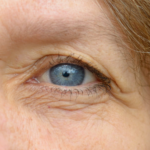Introduction: Sleep and Diabetes Risk
Sleep and diabetes risk are closely linked. Research shows that not getting enough sleep greatly increases the chance of developing type 2 diabetes.
Individuals who sleep fewer than six hours per night face disruptions in glucose metabolism, insulin sensitivity, and overall energy regulation. Even those who maintain a healthy diet are not fully protected from the harmful effects of sleep deprivation. Understanding the complex interaction between sleep patterns and diabetes is critical for prevention and long-term health management. The global prevalence of diabetes continues to rise, making it imperative to address sleep as a key lifestyle factor.
How Sleep Duration Impacts Diabetes Risk
Multiple studies have confirmed that chronic short sleep is associated with higher rates of type 2 diabetes. Sleep deprivation affects the body’s ability to regulate blood sugar effectively.When sleep is insufficient, the pancreas produces less insulin. The body’s cells also respond less effectively to the insulin that is available.
Over time, this imbalance can lead to persistent hyperglycemia and increase the risk of developing type 2 diabetes. Short sleep also disrupts appetite-controlling hormones. This can increase calorie intake and cause weight gain, both known risk factors for diabetes. Globally, populations experiencing shorter average sleep durations are reporting higher diabetes incidence, demonstrating the universal nature of this health concern.

The Science Behind Sleep and Glucose Metabolism
The relationship between sleep and glucose metabolism is rooted in complex endocrine and neurological pathways. During deep sleep, the body regulates hormones such as cortisol, leptin, and ghrelin, which influence glucose balance and appetite control. Lack of restorative sleep disrupts these processes, causing insulin resistance and altered glucose tolerance. Sleep loss also increases inflammatory markers in the body, which further exacerbates metabolic dysfunction. Studies using continuous glucose monitoring show that even one night of restricted sleep can raise fasting blood sugar. It can also reduce insulin sensitivity. For people at risk of diabetes, keeping a regular sleep schedule is as crucial as diet and exercise for controlling blood sugar.
Study Findings: Short Sleep and Increased Diabetes Incidence
Large-scale longitudinal studies have revealed that individuals sleeping fewer than six hours per night have a significantly higher incidence of type 2 diabetes over time. A study of nearly 250,000 participants over 12 years found that people who slept very little were almost twice as likely to develop diabetes as those who slept seven to eight hours per night. The risk remained elevated even after accounting for diet, body mass index, age, and physical activity. This evidence shows that sleep plays an independent role in diabetes prevention. It highlights the need for public health programs that promote healthy sleep habits alongside diet and exercise. https://www.who.int/news-room/fact-sheets/detail/diabetes
Diet Alone Cannot Offset Sleep Deficiency
While a healthy diet can reduce the risk of diabetes, it cannot completely counteract the effects of chronic sleep deprivation. Participants in research studies who followed recommended dietary guidelines, including adequate fruit, vegetable, and fish intake, still exhibited higher diabetes risk when their sleep was insufficient. This indicates that diet and sleep operate through different mechanisms in the body, and both are crucial for optimal metabolic health. Public health messages focusing solely on diet or exercise without addressing sleep may fail to fully prevent the development of type 2 diabetes, emphasizing the need for a holistic approach to lifestyle modification.
Lifestyle Factors Amplifying Diabetes Risk
In addition to sleep and diet, several lifestyle factors contribute to the risk of type 2 diabetes. Sedentary behavior, chronic stress, and irregular daily routines can exacerbate the metabolic effects of sleep deprivation. High levels of stress increase cortisol production, which raises blood sugar levels and promotes fat deposition around the abdomen. Lack of physical activity further reduces insulin sensitivity and can lead to obesity, a major risk factor for diabetes. Smoking and excessive alcohol consumption are also linked to increased risk. When combined with insufficient sleep, these factors create a synergistic effect, amplifying the likelihood of diabetes onset.
Sleep Hygiene Strategies to Lower Diabetes Risk
Improving sleep hygiene is a practical strategy for mitigating diabetes risk. Consistent sleep and wake times, a dark and cool sleeping environment, and pre-sleep routines such as reading or meditation can promote restorative sleep. Avoiding caffeine and alcohol several hours before bedtime also helps the body achieve deeper stages of sleep necessary for metabolic regulation. For shift workers or individuals with irregular schedules, strategies such as strategic napping, blackout curtains, and melatonin supplementation may be beneficial. Public health programs and individual lifestyle interventions should prioritize sleep education to complement dietary and exercise recommendations for diabetes prevention.
Global Implications of Sleep-Related Diabetes Trends
The link between sleep deprivation and diabetes has significant implications for global health. In countries where long work hours, electronic device use, and urban lifestyles reduce average sleep duration, type 2 diabetes prevalence is rising at alarming rates. Developing nations face additional challenges, as limited access to healthcare and growing urbanization contribute to sleep disruption and chronic disease development. Addressing sleep as a public health priority could significantly reduce the global burden of diabetes and related complications, including cardiovascular disease, kidney disease, and neuropathy.
Recommendations for Healthcare Providers
Healthcare providers should routinely assess patients’ sleep patterns as part of comprehensive diabetes risk evaluations. Screening for sleep disorders such as insomnia and sleep apnea, and providing guidance on sleep hygiene, can complement traditional interventions like diet and exercise counseling. Clinicians should educate patients about the impact of sleep on glucose metabolism, emphasizing that even modest improvements in sleep duration and quality can reduce diabetes risk. Multidisciplinary approaches involving nutritionists, sleep specialists, and endocrinologists may optimize outcomes for patients at high risk.

Future Research Directions in Sleep and Diabetes
Despite mounting evidence, more research is needed to fully understand the mechanisms linking sleep and diabetes. Randomized controlled trials are necessary to establish causality and determine whether interventions that improve sleep can effectively reduce diabetes incidence. Longitudinal studies across diverse populations will help identify vulnerable groups and tailor interventions accordingly. Additionally, research into the interaction of sleep with genetics, stress, and diet will provide a more complete picture of diabetes prevention strategies. Understanding these complex interactions is essential to designing policies and programs that address the multifactorial nature of diabetes risk.
Conclusion
Sleep and diabetes risk are tightly connected, with chronic sleep deprivation emerging as a major independent factor in the development of type 2 diabetes. Adequate sleep, alongside a healthy diet, regular exercise, and stress management, is critical for maintaining metabolic health. Public health interventions must consider sleep as a central component in the fight against diabetes, educating populations about the dangers of insufficient rest and promoting lifestyle changes that reduce long-term disease risk. By integrating sleep health into diabetes prevention strategies, individuals and communities can work toward reducing the global burden of this silent epidemic.




